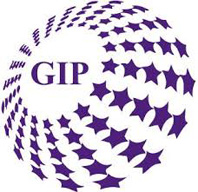
GIP presents policy paper on strategic communication in times of crises
By Natalia Kochiashvili
Wednesday, November 13
Georgian Institute of Politics (GIP) held a policy paper presentation - "Strategic Communication in times of crises: Cases of Georgia and Lithuania." The event took place on Tuesday at the Information Center on NATO and the EU.
The research, conducted jointly by GIP and the Vilnius Institute for Policy Analysis (VIPA), provides an overview of the nature of threats and challenges Georgia and Lithuania face; discusses the strategic communication in the context of crisis management and demonstrates the importance of national resilience in countering both internal and external challenges.
The Ambassador of the Republic of Lithuania to Georgia - H.E. Giedrius Puodziunas - opened the event together with Kornely Kakachia, GIP Director. The policy paper was presented by co-authors - Levan Kakhishvili (GIP Policy Analyst) and Donatas Puslys (VIPA Analyst).
The aforementioned paper identifies the conceptual framework of the 5 stages of crisis management which are sense-making, meaning-making, decision making, termination, and learning. Authors later discuss the cases of Georgian and Lithuanian governments’ responses to political crises – in Georgia’s case, the discussion focuses on June Protests and the topic of borderization.
In the first case, the authors look into the Georgian Dream narrative about the night of June 20, the portrayal of domestic actors involved in June events according to the ruling party’s dynamic narrative and public attitudes regarding the evaluation of government’s response to the events of June 20 and the following protests.
Regarding the borderization issue, given the tensions in occupied Tskhinvali region throughout this summer and later, it is treated as a non-partisan issue in this paper, yet the blame-gaming of both, the ruling party and the opposition is heavily underlined. The study also includes the statistic from the 2017 NDI poll, according to which, 68* of the population doesn’t trust any political party to manage the issue of restoration of territorial integrity. All in all, both cases are said to be demonstrating ineffective strategic communication and crisis management.
As for the exemplary cases from Lithuania, this research suggests next 2: Teachers strike and Kremlin’s attempts on spreading disinformation regarding the history of Lithuania, crises that were successfully terminated by the government.
According to the study, the main lessons that Georgia can learn from Lithuania is, that all crises are important and next measures should be taken: Conduct informational campaigns and involve the target audience in making important decisions; Avoid polarizing language; Avoid “divide and rule” tactics; Ensure close coordination of various government institutions and cooperate w/civil society and political parties; Increase media literacy of the vulnerable parts of the society and minimize the impacts of acts of hybrid aggression; and lastly, tailor media literacy programs to the needs of the target audience.



